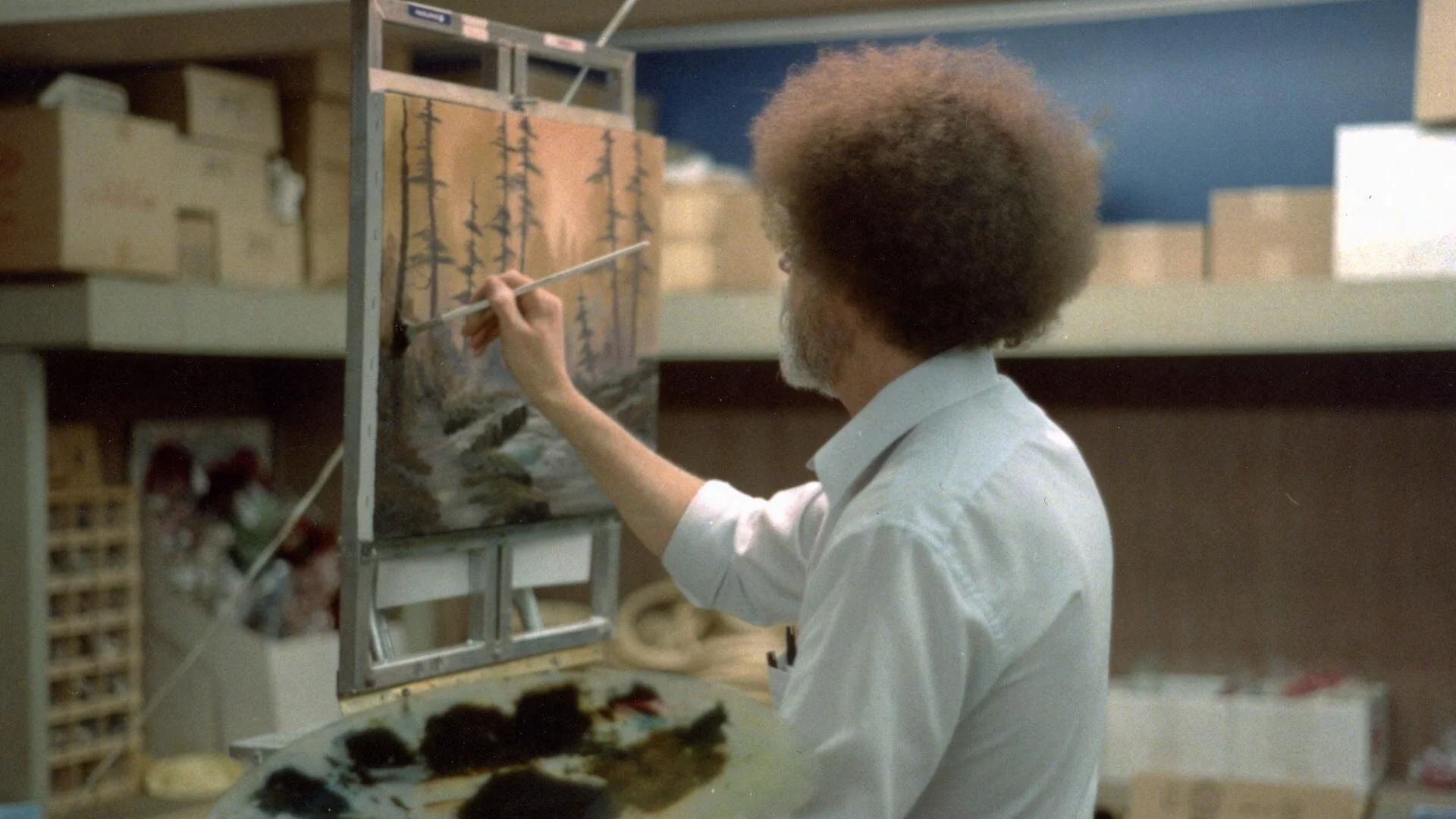BOB ROSS: HAPPY ACCIDENTS, BETRAYAL & GREED
Directing: B-
Writing: B-
Cinematography: B
Editing: B
The new Netflix documentary Bob Ross: Happy Accidents, Betrayal & Greed might be a better experience if you only watch about the first half of it, when director Joshua Rofé fouses on when the famed PBS painter was still alive. As it stands, once I finished the whole film, I found myself thinking mostly about how it was not quite the movie I wanted it to be.
To be fair, the subtitle itself makes things pretty clear: this is a story that either injects or reveals drama in Ross’s legacy, depending on how you look at it. Ross and his wife partnered with another couple, Annette and Walt Kowalski, who are positioned definitively by Rofé here as villains. And maybe they are villains, who knows? The trouble with Bob Ross is that it provides a definitively biased side to the story, with a halfhearted attempt at “fairness” by specifying how they reached out to the Kowalskis, who declined to be interviewed. We learn at the end of the film that the Kowalskis “reached out” after the film was completed, and dispute any claims to their acting counter to Ross’s interests.
Beyond that, we don’t get any of their story. The unfortunate result is that Bob Ross feels rather like a film version of character assassination, a sort of vengeance, against the Kowalskis, who are characterized as litigious monsters, so intimidating that “more than a dozen” potential subjects declined to be interviewed for the film for fear of them.
And, again: maybe they are. This film makes a compelling case that Ross’s will specified that he wanted his empire to be left to his brother and his son Steve, who gets the most air time in this film. Steve’s uncle, who had barely more than half controlling interest, sold it to the Kowalskis, and Steve gets no part of the millions earned by the Kowalskis selling products capitalizing on the Bob Ross likeness.
I’m just over here thinking . . . who cares? Does this story really justify a documentary feature? Does anyone with fond memories of watching Bob Ross on The Joy of Painting thirty years ago really need those memories tainted by this exercise in bitterness? Rofé is trying to build intrigue in a story that has very little, like this is some great big reveal that Bob Ross had associates who were apparently assholes. You want to see a genuinely shocking and infuriating documentary, something that will truly make your jaw drop? Watch Collective. It’s streaming on Hulu.
Bob Ross, on the other hand, is streaming on Netflix, which of course has more subscribers, and is already on their top ten list. I’m sure plenty of (probably mostly older) people are watching this movie and totally moved by it. “I won’t buy any Bob Ross products!” they’ll say, even though they never bought any to begin with. I’m just not sure what kind of difference this movie is making, aside from offering a version of closure to his son and a few close friends. I’d much rather have just watched a documentary about Bob Ross’s life before his death, and about how his public access art instruction show became a minor cultural phenomenon. And really, that’s what about half this movie is. So, maybe go ahead and watch this and just turn it off once it gets to the part where he passed away in 1995.
The Joy of Painting eventually dissipates, apparently.
Overall: B-

